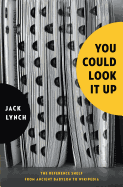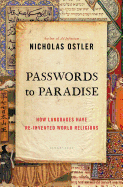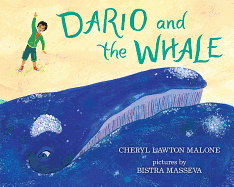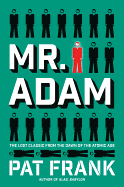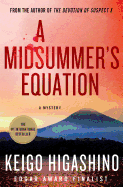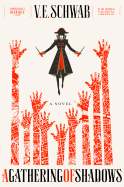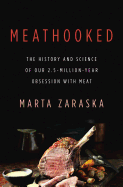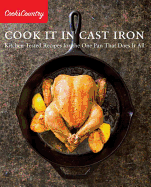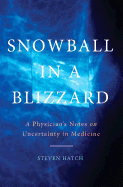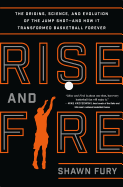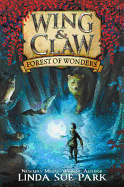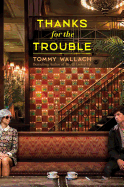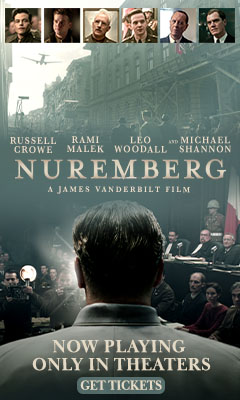Friday, March 4, 2016
I am an inveterate mystery reader. A pleasure of this passion is finding an author new to me whom I like, and who has a backlist to dive into. Another is discovering a new author; the pain is in waiting for the next book. One such writer is Trudy Nan Boyce, whose first novel introduces Detective Sarah Alt, aka Salt, in Out of the Blues (Putnam). Boyce was a beat cop, homicide detective, hostage negotiator and lieutenant in Atlanta before retiring in 2008. She knows policing. She writes with intensity and flair and wit. This combination has resulted in an irresistible procedural with a winning protagonist. And the bonus, the lagniappe, is the seductive way Boyce writes about music, particularly the blues.
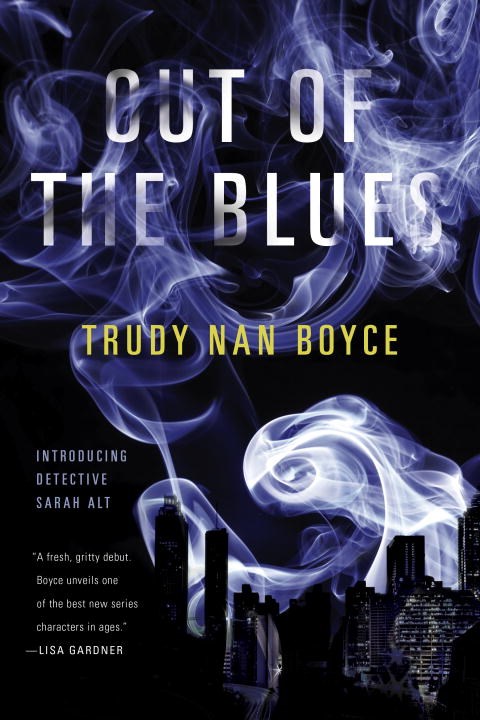 "The crowd quieted as lone Mustafa came onstage, striking a beat hard and sharp with his hickory sticks. He carried the beat to his drum kit and another spotlight came on as he set into a blues shuffle... Goldie blew a first skronky peal from the sax and all the stage lit up.... Young Mustafa's eyes watched Bailey with a reverential focus, barely suppressing his joy, doing better than best to push the band. Dan and Pops built a base with their groove. B-Bird made it full, and when Goldie and Bailey reached out to each other, the band brought both old-time believers and converts to the congregation of 'Everyday I Have the Blues.' "
"The crowd quieted as lone Mustafa came onstage, striking a beat hard and sharp with his hickory sticks. He carried the beat to his drum kit and another spotlight came on as he set into a blues shuffle... Goldie blew a first skronky peal from the sax and all the stage lit up.... Young Mustafa's eyes watched Bailey with a reverential focus, barely suppressing his joy, doing better than best to push the band. Dan and Pops built a base with their groove. B-Bird made it full, and when Goldie and Bailey reached out to each other, the band brought both old-time believers and converts to the congregation of 'Everyday I Have the Blues.' "
Three in the morning, Salt is perched on a fire escape above "a noir avenue." In the stillness, "The only sounds were water noises, drips and splashes against the white noise and muted chords of the city that began somewhere down the street. Music could bend around blocks, and the sax man had a wail with a will, even when he'd walked farther downtown.... Salt could catch bits of his brass notes against the muffled sounds of Atlanta pulling up her covers."
A stunning debut. --Marilyn Dahl, editor, Shelf Awareness for Readers
Green Island
by Shawna Yang Ryan
Green Island, Shawna Yang Ryan's follow-up to her debut novel, Water Ghosts, explores many themes familiar to readers of immigrant literature--cultural collision, alienation, loneliness--while grounding these themes in a story about trauma inflicted on a national scale. Ryan, who spent time as a Fulbright scholar in Taiwan, has centered her narrative on Taiwan's seemingly endless history of occupation, colonization and repression.
Finally freed from Japanese occupation by the end of World War II, Taiwan soon found itself again flooded with foreigners, this time by supporters of Chiang Kai-shek's recently defeated Kuomintang (or KMT). Green Island opens with the protagonist's birth, which coincides with an anti-KMT uprising and a government crackdown that began a long, infamous phase of Taiwanese history known as the White Terror. The protagonist's father, or Baba, is soon swept up in a wave of government kidnappings and we follow him as he survives, mostly by luck, years of brutal treatment. When Baba finally returns to his family, our protagonist notes: "In all ways, he was a stranger."
The protagonist, who remains unnamed, grows up in a Taiwan crippled by the moral and spiritual ramifications of totalitarian rule. She marries not out of love, but out of a desire for a better life in the U.S. Even still, she can't escape the long reach of the KMT's secret police, and her struggle to acclimate to a new country is vastly complicated by the persistent threat of violence against her and her family members in Taiwan. Green Island is historical fiction at its epic, heartrending best. --Hank Stephenson, bookseller, Flyleaf Books
Discover: This is an epic, generations-long story about a Taiwanese family haunted by their home country's long history of tyranny and repression.
Mr. Adam
by Pat Frank
At the dawn of the Atomic Age, an experimental nuclear plant explodes in Mississippi. Nine months pass, the shock subsides and life goes on, until New York newspaperman Stephen Smith makes an unsettling discovery: there are no births scheduled in the city's hospitals after June 22. Calls across the country and the world reveal the same grim mystery--a looming deadline of empty maternity wards. Scientists discover that the Mississippi explosion unleashed an unknown form of radiation rendering all men sterile. All but one--hapless Homer Adam, shielded from the blast by chance at the bottom of a lead mine. This shy man becomes humanity's last escape from extinction, and Stephen Smith finds himself in the unenviable position of being Mr. Adam's confidant and caretaker in a bureaucratic maelstrom that envelops them both.
Pat Frank (1908-1964), real name Harry Hart Frank, a journalist and government consultant, is best known for his post-nuclear apocalypse novel Alas, Babylon (1959). Mr. Adam was first published in 1946. Though some of the pop culture and political references are dated, the story remains as relevant as ever. Much of it is satire revolving around bloated federal agencies and geopolitical bickering, with a dash of military and scientific ineptitude in Dr. Strangelove style. The protagonist's dark wit and poor Homer's bumbling farm-boy awkwardness make them excellent centerpieces for this humorous early-Atomic Era Children of Men. Despite touches of the period's casual misogyny, it is welcoming to see Mr. Adam reproduced for its 70th anniversary. --Tobias Mutter, freelance reviewer
Discover: This reprint of a 1946 novel is about a nuclear accident rendering all but one man on Earth sterile.
Mystery & Thriller
A Midsummer's Equation
by Keigo Higashino, transl. by Alexander O. Smith
At the start of Keigo Higashino's A Midsummer's Equation, a boy on a train on his way to visit family meets physicist Manuba Yukawa, also known as Detective Galileo in the popular and Edgar-nominated Japanese mystery series. The boy's aunt and uncle run the Green Rock Inn in Hari Cove, a beach resort town that's fallen on hard times, and Yukawa is headed there to speak at a conference regarding a proposed underwater mining operation opposed by a local preservation group.
Yukawa decides to stay at the Green Rock Inn, and the night after he arrives, one of the guests is found dead on the rocks near the beach. The local cops think it an accident, but when the deceased turns out to be a former Tokyo homicide detective, the death looks more like murder. With Yukawa's help, the police discover that the detective's death might have ties to an old case that was closed due to a confession, but perhaps the resolution wasn't the truth.
As with Higashino's previous U.S. release, Malice, A Midsummer's Equation unfolds one layer at a time, each deepening the mystery, taking it in a different direction and ending up in unexpected places. Yukawa employs a low-key approach to solving the case, guiding the police to where they should look for clues instead of lording his intelligence over them the way Sherlock Holmes might with Inspector Lestrade. This teach-them-how-to-fish method encourages readers to examine the puzzle pieces and reach their own conclusions, maybe even have their own eureka moments. --Elyse Dinh-McCrillis, blogger at Pop Culture Nerd
Discover: The seemingly accidental death of a guest in a rundown resort town looks more malicious when the deceased's identity and history come to light.
Science Fiction & Fantasy
A Gathering of Shadows
by V.E. Schwab
V.E. Schwab delivers another magically charged world-hopping adventure through parallel-universe Londons, this time centered on questions of home and identity. Picking up four months after the events of the first volume (A Darker Shade of Magic), this sequel finds Kell having trouble adjusting now that his life and the life of his adopted brother, Prince Rhy, are magically bound, causing them to share each other's physical and emotional feelings. Kell has dropped his occupation of Traveler from Red London to White and Gray Londons to keep Rhy safer, but feels caged. Delilah "Lila" Bard, the best thief on land or sea, has found a comfortable position as ship's thief to Alucard Emery, privateer captain of the Shadowspire, who teaches Lila to unleash her magical talent. All players come together again for the Essen Tasch, the Element Games, a magical combat tournament held between Londons. While Lila schemes to join the roster of competitors, Rhy talks Kell into competing in disguise. Embroiled in intrigue, flirtations and secrets aplenty, none of them realize an enemy presumed dead stalks their world from afar.
Lila shines as a tough, smart heroine with a flexible moral code, stealing an entire ship in the first chapter. Kell continues to feel like an outsider in his adopted family, while Lila struggles against her unfamiliar feelings of belonging on the Shadowspire. Schwab's detailed world-building and snappy dialogue continue to enchant, and she leaves readers on a cliffhanger sure to lead to an explosive series conclusion. --Jaclyn Fulwood
Discover: In the sequel to A Darker Shade of Magic, denizens of parallel-universe Londons take on a magical tournament and their complicated relationships while a secret enemy lurks.
Food & Wine
Meathooked: The History and Science of Our 2.5-Million-Year Obsession with Meat
by Marta Zaraska
Polish-Canadian science journalist Marta Zaraska prefaces her history of humans eating meat by mentioning scientific studies of its harmful effects on health, the environment and (of course) animals, but Meathooked is more a fascinating story of our growing global consumption of meat than a political diatribe. What makes humans devour so many ribs and chops? What has us hooked on meat?
Quickly Zaraska moves along a historical timeline that includes the still-existent carnivore worm, prehistoric cephalopods and arthropods, and, finally, our African hominin ancestors, standing on two legs and drifting from a diet of plant fiber, seeds and nuts to their first taste of meat. Some might argue that it's been downhill from there, but Zaraska spends several chapters explaining the human biochemical need for protein, iron and vitamin B12, which meat readily provides. She takes us through the importance of genetics, taste, texture and scent to the evolution of meat eating. After all this science, Zaraska suggests that humans can certainly survive without meat--perhaps even survive longer--but there is something more than science to our craving for bacon and a succulent rack of lamb.
Zaraska explores the impact of the meat industry's subsidies, the developing world's desire to emulate the behavior of the wealthier West, the advertising juggernaut selling both the sizzle and the steak, and often-ineffective vegetarian movements. In the end, a more vegetarian diet might be best for humans and for Earth, but as Zaraska concludes: "The meat hooks are far too strong for that." --Bruce Jacobs, founding partner, Watermark Books & Cafe, Wichita, Kan.
Discover: Science writer Marta Zaraska explores the causes and effects of the growing global appetite for meat.
Cook It in Cast Iron: Kitchen-Tested Recipes for the One Pan That Does It All
by the editors at Cook's Country
America's Test Kitchen is known for its delectable, well-tested recipes, whether one finds them via cookbook, magazine, television or podcast. In its latest cookbook, Cook It in Cast Iron: Kitchen-Tested Recipes for the One Pan That Does It All, the editors of Cook's Country have tested dozens of recipes in the Test Kitchen, to perfect the best possible versions of dishes made in perennially versatile cast-iron skillets.
Cast iron has enjoyed a recent resurgence, as people have realized that non-stick skillets are not always the best choice, health-wise, due to the toxicity of some non-stick surfaces. Cook It in Cast Iron just might convince even reluctant cast iron converts that they need to purchase one, in spite of their reputation for having a bit of a learning curve. Full of beautiful food, detailed recipes, precise explanations of why each recipe works, simple techniques for novices, and a helpful introduction that offers tips on seasoning and rates 10 skillets on the market, Cook It in Cast Iron is a welcome addition to any home cookbook library.
Recipes include classics like scrambled eggs and cornbread, as well as surprising choices like loaded nachos, apple pie and baked ziti. Each recipe is easy to follow, and many include helpful sidebars, such as how to shave parmesan, prepare bell peppers and turn a cast iron skillet into a panini press (by stacking a Dutch oven atop sandwiches in the pan).
For someone who got a cast iron skillet as a gift, or anyone looking to expand a cooking repertoire, Cook It in Cast Iron is an unbeatable cookbook. --Jessica Howard, blogger at Quirky Bookworm
Discover: America's Test Kitchen showcases recipes for the versatile cast iron skillet.
Health & Medicine
Snowball in a Blizzard: A Physician's Notes on Uncertainty in Medicine
by Steven Hatch
When a medical test comes back positive for some terrifying disease, we want certainty: a clear diagnosis and a cure. This isn't always easy, according to doctor and medical researcher Steven Hatch. "A diagnosis is, much more often than not, a conjecture, and a prognosis is typically less certain than that." To navigate the hazy modern world of health and medicine, he says, doctors and patients must learn how to ask the right questions.
Snowball in a Blizzard is Hatch's first book, but the clarity and wit of his discussions rank with that of the best science writers. He explains the often counterintuitive world of medical research, the nature of uncertainty in diagnosis and treatment, and the role media plays in shaping our attitudes about medicine. His central idea is a "spectrum of certainty" that can be used to evaluate medical decisions. Hatch looks at the controversies around mammograms, PSA screening, Lyme disease and high blood pressure guidelines. He shows how confirmation bias and the human tendency to see nonexistent patterns can mar the judgment of even the best medical professionals, and how routine annual screenings can result in thousands of false positives every year for patients who then undergo unnecessary, expensive and potentially harmful treatments in the belief that they are being saved from diseases they never had. Hatch recommends that doctors cultivate humility, and that patients ask many polite educated questions. "Your medical plan is yours: you own it, and your doctor should be your guide, not your director." --Sara Catterall
Discover: A physician explains that understanding the nature and depth of uncertainty in medical diagnosis and treatment can result in better care.
Sports
Rise and Fire: The Origin, Science, and Evolution of the Jump Shot--and How It Transformed Basketball Forever
by Shawn Fury
While basketball's slam dunk may get all the glory, journalist Shawn Fury (Keeping the Faith) suggests in Rise and Fire that the jumper is the money shot that changed basketball for good. From its 1891 origin in the Springfield, Mass., YMCA (when James Naismith nailed peach baskets on a couple of posts) until the 1930s, basketball was a team sport ruled by intricate ball-handling and quick passes until an open man squares to the basket, sets, and with two hands pushes the ball toward the hoop. When players abandoned the set shot to put the ball up with hands overhead and feet off the floor, the game changed big time. On every playground and backyard in the country, kids could now perfect their fadeaways, pick-n-pops and all-net wets to leapfrog heavily coached organized ball and break straight into national college and pro fame.
Including interviews with both early masters like Jerry West and more obscure players like Bobby Plump and Kenny Sailors, Rise and Fire is not just a history of the jump shot, but also a comprehensive history of modern basketball. Fury profiles the great shooters of each decade, and touches on the evolution of the tools of the game--the rims, nets, backboards and balls. As the country's unofficial baller capital, Indiana merits several chapters, including play-by-plays of the famous New Castle "Church Street Shootout." From a small town in Minnesota, Fury weaves his own "hoop dreams" into the book--an anecdote- and research-filled love story for anyone who worships at New York's West 4th Street playground or Kansas's famous fieldhouse "The Phog." --Bruce Jacobs, founding partner, Watermark Books & Cafe, Wichita, Kan.
Discover: Rich with game details, player biography and roundball lore, Rise and Fire is a history of modern basketball traced through the devastating and graceful jump shot.
Reference & Writing
You Could Look It Up: The Reference Shelf from Ancient Babylon to Wikipedia
by Jack Lynch
In You Could Look It Up: The Reference Shelf from Ancient Babylon to Wikipedia, English professor Jack Lynch (The Lexicographer's Dilemma) argues that reference books are "a civilization's memoranda to itself." A society's reference books offer facts but also something about what that society valued. (Or what some of a society's members valued: the annotated list of prostitutes from 18th century London, for instance, had a specific audience.)
Each chapter pairs two works dealing with similar topics--words, medicine, games, the arts--and places them in historical context. Lynch begins with the ancient law codes, which are the oldest reference books, and ends with modern books of trivia, which transform the reference book from a compendium of essential knowledge into a form of amusement.
The stories of the individual books are fascinating in and of themselves. (The Guinness Book of World Records began as a promotional item designed to settle drunken wagers in pubs.) But some of the most startling revelations come in the form of what Lynch dubs "half-chapters," short essays in which he investigates broader topics related to reference books, including the antiquity of complaints about information overload, the relatively late adoption of alphabetizing as an organizational structure, and the introduction of deliberate errors by reference book editors.
You Could Look It Up is a history not simply of reference books as a genre but of the broader question of how we organize information and why. --Pamela Toler, blogging at History in the Margins
Discover: Why reference books are both charming and important, even in the age of the Internet.
Passwords to Paradise: How Languages Have Re-Invented World Religions
by Nicholas Ostler
Nicholas Ostler (Empires of the Word) begins Passwords to Paradise: How Languages Have Re-Invented World Religions by examining how all religions begin life in a particular language. Once the religion has become established and travels beyond its original geographical boundaries, its "passwords to paradise" must then be translated and communicated in new languages.
In particular, Ostler traces the linguistic migration of three big missionary religions--Christianity, Buddhism and Islam. He analyzes regional vocabulary, grammar and written forms to show how the translation of scripture to local languages modified scriptural interpretations and reinforced national identities. Buddhism was adapted into Gandhari, the lingua franca of Central Asian trade routes, allowing it to proliferate in written form. When Gandhari traders took Buddhism into China, scholars who adapted Buddhist teachings to the format of Chinese classics misinterpreted certain phrases, changing their meaning. Christianity followed a similar route, evolving from spoken Aramaic to Greek, the official language of trade in the early Roman Empire. As Christianity traveled west across the Roman Empire, its translation into the Latin vernacular generated wider appeal. Christianity evolved from a religion of the few to a religion embraced, codified and favored by the ruling emperor, only to be divided philosophically by the language communities of Northern Europe. Islam required converts to adopt Arabic in practice, insisting "that its revelation... is only truly available to those who understand" the language.
Passwords to Paradise is a scholarly work intended for linguists, but Ostler's extensive research and well-drawn conclusions should make this an intriguing read for religious history buffs. --Nancy Powell, freelance writer and technical consultant
Discover: Nicholas Ostler demonstrates how language has altered religious interpretation and thought.
Children's & Young Adult
Dario and the Whale
by Cheryl Lawton Malone, illus. by Bistra Masseva
One April morning, debut author Cheryl Lawton Malone and her dog had a real-life encounter with a noticeably curious whale while walking on the beach in Provincetown, Mass. This breathtaking picture book was inspired by that profound interaction.
A Brazilian mother and her son--and a whale and her new calf--live parallel lives. The humans are on Cape Cod because the mother is a seasonal cook at the Salty Cod. The whales are off Cape Cod because that's where North Atlantic right whales go in the spring before they migrate in May. (An author's note provides all the details.) Dario, who speaks Portuguese, awkwardly tries to make friends on the beach. As he's accidentally bumping into a girl's sand castle (" 'Desculpe,' Dario says, turning pink"), the whale is playfully bumping a green turtle, which swims away. When Dario launches a kite, the whale launches himself. And then, "Dario sees the whale. The whale sees Dario." The almost holy wonder of looking into a whale's eye is sublimely captured here in Bulgarian-born illustrator Bistra Masseva's (My Dad) beautiful, dramatic spread showing a giant whale's head looming large, with the boy dwarfed on the shore. Every day after that, the boy races to the beach to see his whale, which spouts when the boy whistles, and breaches when he waves.
It is a dream, to be seen by and make friends with a whale, and the author quietly captures the heart-quickening excitement akin to what she must have felt herself that April day. Dario and the Whale may well inspire a new pod of marine biologists. --Karin Snelson, children's & YA editor, Shelf Awareness
Discover: Boy meets whale in this radiant picture book, inspired by the author's real-life encounter with a curious whale in Cape Cod.
Forest of Wonders (Wing & Claw: Book 1)
by Linda Sue Park, illus. by Jim Madsen
Newbery Medalist Linda Sue Park (A Single Shard) moves from historical fiction into the fantasy genre in this trilogy debut filled with stalwart friends, ethical quandaries and touches of magic.
Twelve-year-old Raffa Santana, who lives on the edge of the Forest of Wonders, has an unusual talent for making healing potions with herbs and plants. When Raffa mixes botanicals, he experiences a kind of synesthesia that tells him whether his formula is perfect, a little off, or downright dangerous. His cousin Garith calls him a "baby genius," but Raffa's ever-critical father, Mohan, cautions that "Talent... [is] no substitute for experience." When Raffa finds an injured bat and tries to heal it with a rare red vine, the plant has an unintended side effect: it gives the tiny, bright-eyed creature the power of speech. "SKEETO!"--short for mosquito--is the hungry little bat's first raspy word. The boy names his new friend Echo. The gentle story takes a suspenseful turn when Raffa heads off to the capital city of Gilden to warn Garith about the red vine's dangerous powers. It's here that Raffa learns about the Chancellor's cruel and ambitious plan to use the red vine to turn innocent animals into tools of ill purpose.
While the adorable talking animals will win hearts, the complex ethical dilemmas Raffa faces about how to use (or not use) his talents lend a maturity to the narrative. Still, Park's choice of simple diction always keeps the story accessible. True hearts and true friends prevail in Forest of Wonders, and readers will anxiously await the trilogy's next installment. --Jaclyn Fulwood, youth services librarian, Latah County Library District (Idaho)
Discover: In Newbery Medalist Linda Sue Park's first foray into fantasy, Raffa's gift for the healing arts leads him--and his talking bat--into a conspiracy in his realm's capital city.
Thanks for the Trouble
by Tommy Wallach
Seventeen-year-old Parker Santé, a Latino American from San Francisco, describes the beautiful, silver-haired girl he meets (and attempts to rob) at a hotel restaurant as "something between an alien and a home-schooled kid."
Zelda Toth claims to have been born in Germany 246 years ago. She also claims she will jump off the Golden Gate Bridge as soon as she gets word that her elderly husband has passed away. Meanwhile, she has a huge stack of cash she's planning to give to the first needy person she sees. Is she crazy? Depressed? A compulsive liar? Parker, wholly smitten if unbelieving, is determined to change Zelda's mind about the bridge. Zelda strikes a deal: Parker will be the "recipient of [her] largesse"--but they'll have to spend the money together. In return, Parker, who hasn't said a word since his father died five years earlier (though he writes obsessively in his journals), and who claims to be "kinda schooled out," will go to college.
Jaded young readers and romantics alike will fall hard for Tommy Wallach's (We All Looked Up) underachieving writer of fairy tales and out-of-time wise woman as they tumble through a delirious three days of skinny dipping, drinking Champagne in a limo and rampant philosophizing. Cleverly but unobtrusively framed as a college application essay, Thanks for the Trouble plays with love, hubris and the youthful belief that more is always better.
"But doesn't everyone want to be young and hot forever?"
"They only think they want it, Parker. But nobody really wants anything forever. Just for longer than they get it."
--Emilie Coulter, freelance writer and editor
Discover: A feckless--and mute--17-year-old boy's world is upended when he meets a beautiful, silver-haired girl who claims to be 246 years old.
| Advertisement nuremberg--now playing in theaters |


